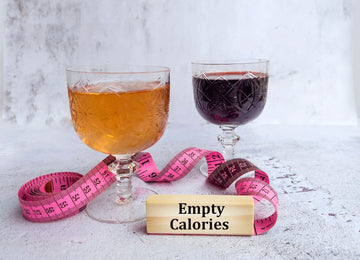by Brenda Hoehn on Oct 12, 2022


The Go-To Shopping List for Bariatric Patients
Your nutrition after bariatric surgery is vital for helping your body recover and adapt to new healthy eating habits. There are four phases to reintroducing foods, and your facility or surgeon will advance you through each one. Adopting a new diet may seem simple, but it takes dedication to maintain over time. Our go-to shopping list for bariatric patients will help you along the way!
Stage 1: Clear Liquids
It’s important to stay hydrated post-surgery, and the best way to allow your stomach to heal is to have a clear liquid diet. Set a goal to drink 64-96 ounces (or eight to twelve, 8-ounce cups) of fluids each day. You can incorporate fruit juices and dilute them with water to avoid nausea and diarrhea. It can also be helpful to refrain from drinking extremely hot or cold liquids until your stomach fully heals, which is at around six weeks. Another option that people find helpful is sipping on ice chips.
As you avoid carbonated drinks, sugary drinks, caffeine, and alcohol, start your diet with:
- Water or ice chips
- Coconut water
- Decaf coffee or tea
- Low sodium chicken, beef, or vegetable broths
- Sugar-free options, such as gelatin, popsicles, and sports drinks
- Fruit juices low in sugar, such as apple, grape, or cranberry, diluted with water
Stage 2: Full Liquids
A full liquid diet includes liquids or foods that will turn into a liquid once pureed. This provides more nutrition than a clear diet and helps you transition to eating soft foods. Still, these foods have little to no fiber or protein to give your digestive system a break. With the approval of a surgeon or dietician, start to incorporate proteins back into your diet in the form of supplements or low-sodium soups.
As you avoid foods like rice, pasta, bread, and sugary foods, you should eat:
- Daily protein supplements at 60-90 grams
- Non-fat, low-sugar yogurt or light Greek yogurt
- Blended cream soups
- Low-sodium soup
- Unsweetened oatmeal
- Sugar-free pudding
- Thinned, unsweetened oatmeal
- Pureed fruits and vegetables
Stage 3: Soft Foods
Once you’re ready to incorporate soft foods, you can start talking to your bariatric program or surgeon about taking a daily bariatric multivitamin. These can include calcium, iron, vitamin B12, vitamin D, and other B-complex and fat-soluble vitamins. Which vitamins to take will depend on your procedure type and medical history. It’s also at this stage where you’ll continue to drink plenty of fluids and incorporate high-protein foods into your diet.
Be careful not to eat the skin and seeds of fruits and vegetables. Instead, you can have:
- Soft fish, such as tilapia, cod, and haddock
- Softened vegetables, like carrots, green beans, and squash
- Scrambled eggs
- Mashed potatoes and mashed sweet potatoes
- Low-fat small curd cottage cheese
- Light yogurt or light Greek yogurt
- Vegetable soups with finely chopped meats and vegetables
- Canned chicken or tuna
Stage 4: Solid Foods
Eating solid foods again is a welcome change, but it’s essential to introduce them slowly. Food preferences can change after having surgery, and food intolerances can happen too. By slowly reintroducing foods to your body, you will be able to identify and then avoid any food intolerances. Preparing meals at home is the best way to stick with your weight loss goals. Your diet should consist of lean meats, beans, and carbohydrates, as these low-calorie foods can help lower your blood pressure and cholesterol.
As you stay away from heavily processed and fried foods and sugary snacks and drinks, be sure to include:
- Lean meats such as fish, turkey breast, and chicken breast
- Hard-boiled eggs
- Low-fat deli meats
- Soft fruit, like apples, pears, and peaches, without the skin and in small quantities
- Low-fat cottage cheese and other low-fat dairy products
- Beans and cooked vegetables
- Whole grain pasta and rice
- Fats in small quantities, at one teaspoon per meal
Get Essential Nutrients With ProCare Health
At ProCare Health, we care about your health and nutrition after bariatric surgery. That is why we offer our Once Daily Bariatric Multivitamin Capsule. Each capsule delivers 22 nutrients, 14 of which have 200% or more of your recommended dietary allowance to help you stay nourished. The capsules are even vegetable-based to be fast dissolving and break down in water.
While you’re at the grocery store, make sure you get everything you need. Take along the post-op shopping list or the maintenance shopping list we created just for you. To learn more about what ProCare Health has to offer, contact us today!

Can You Drink Caffeine After Bariatric Surgery?

Can You Drink Alcohol After Bariatric Surgery?

How To Find Support Post-Bariatric Surgery

